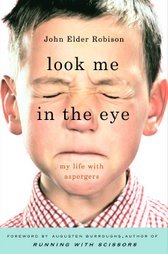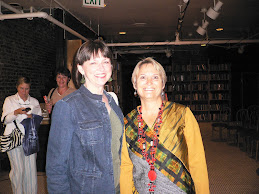In her book “On Death and Dying” Dr. Elisabeth Kubler-Ross introduced the concept of the 5 stages of grief; denial, anger, bargaining, depression and acceptance. Being aware of these stages has helped me cycle through some difficult times because my rational and logical mind pinpoints where I am in the process and scoots me along the path to acceptance and moving forward.
I’m not one to wallow in my grief and rarely take long to move through the stages because I’ve always been alone and never could afford to stop my life to grieve. I have to keep going. Breaking down has never been an option for me. I’ve also learned to separate my life into public and private personas so even when I am unhappy others rarely know it. A friend once described me as the definition of poker faced.
Anyway, the 5 stages of grief are worthy of occasional review because they apply not only to dying, but to any situation involving loss – the loss of a friend, job, person, pet, relationship, prized possession, contest, etc. Here are the basics of each stage.
1. Denial and Isolation: The first reaction is to deny the reality of the situation. It’s a normal reaction to rationalize overwhelming emotions and is a defense mechanism that buffers the immediate shock. We block out the words and hide from the facts. This is a temporary response that carries us through the first wave of pain.
2. Anger: As the masking effects of denial and isolation begin to wear, reality and its pain re-emerge. We are not ready. The intense emotion is deflected from our vulnerable core, redirected and expressed instead as anger. The anger may be aimed at inanimate objects, complete strangers, friends or family. Anger may be directed at what we have lost or are losing. We feel guilty for being angry, and this makes us angrier.
3. Bargaining: The normal reaction to feelings of helplessness and vulnerability is often a need to regain control. If only we had sought medical attention sooner. If we got a second opinion from another doctor. If we had been more careful or hadn’t opened our mouths, etc. Secretly, we may make a deal with God or our higher power in an attempt to postpone the inevitable. This is a weaker line of defense to protect us from the painful reality.
4. Depression: Two types of depression are associated with mourning. The first is a reaction to practical implications relating to the loss. Sadness and regret predominate. We worry about the cost of treatment and burial. We worry that, in our grief, we have neglected others. This phase may be eased by a bit of helpful cooperation and a few kind words. The second type of depression is more subtle and, in a sense, perhaps more private. It is our quiet preparation to separate and to say farewell. Sometimes all we really need is a hug.
5. Acceptance: Some people never reach this stage. Death may be sudden and unexpected or we may never see beyond our anger or denial. They resist the inevitable and deny the opportunity to make peace. This phase is marked by withdrawal and calm. This is not a period of happiness and must be distinguished from depression.
You can be in several stages at once and can move back and forth through them. The only danger is becoming stuck. In the end, if you don’t accept and move on you will never heal inside.
As mentioned above, I’m rational and logical and have moved to acceptance for now. I’m preparing for the inevitable fully aware that I may cycle through the stages again before and when Rosie dies. Somehow, knowing these stages are normal makes it easier to cope.
How do you handle loss?
Wednesday, September 26, 2007
Subscribe to:
Post Comments (Atom)










3 comments:
When my father-in-law passed away, my husband had a hard time going through these stages. It took him years to get to acceptance. It was harder on his mother and we found the key with handling the worst of any of these stages was making sure someone was always around. I hope you have a strong network of friends and family you can lean on to help you. My best.
I am on the grief path for a different reason -- right now I'm flipping back and forth between anger and acceptance. I am resilient, but I am angry that it gets called upon and tested like it does -- I know it's there -- I'm a freaking guru already, what spiritual lesson are you trying to impart now?
Dark humor aside, or maybe just a bit more, but I am serious when I say, I have never felt the presence of a single dead relative, but I swear by my standing neck hairs, my sweet departed dog, Izzy, has given me a nod here and there from the great beyond.
God bless, I know it's not easy. My thoughts are with you and Rosie.
I usually race through denial and anger and wallow around in bargaining until the actual death (whether of a person, pet or relationship).
I suspect being Catholic plays a large part in that dynamic. After all, the Catholic Church did a bustling business selling indulgences during the Middle Ages, and that memory still lingers, IMHO. My mother and aunts are forever purchasing masses for one thing or another.
Once the "death" occurs, I go straight into depression where I stay until I get tired of myself and have to move on.
When my father died unexpectedly, my whole family went to pieces. I had to hold it together to help us get through. I *thought* I'd gone straight to acceptance. The funny thing was, after I returned to Dallas and my job, I still hadn't shed more than a few tears.
Eight weeks later, I driving and listening to a NPR segment on La Dia Del Muerte in Mexico, when the dead are remembered. I burst into tears and was crying so hard, I had to pull over to the shoulder because I couldn't see.
I now think I had been ignoring the stages, living in a kind of limbo, until it was safe to experience the pain.
Once I finished my crying jag (which went on for about forty minutes), I was fine. Humans are marvelously adaptive.
Post a Comment